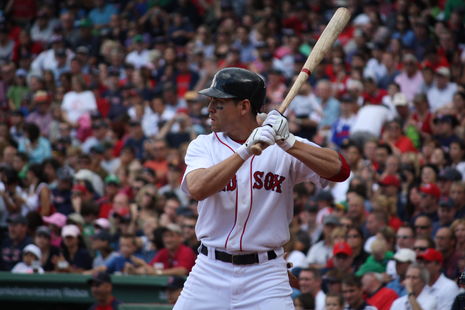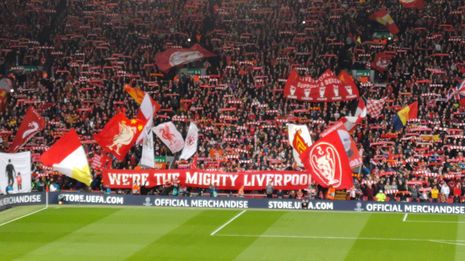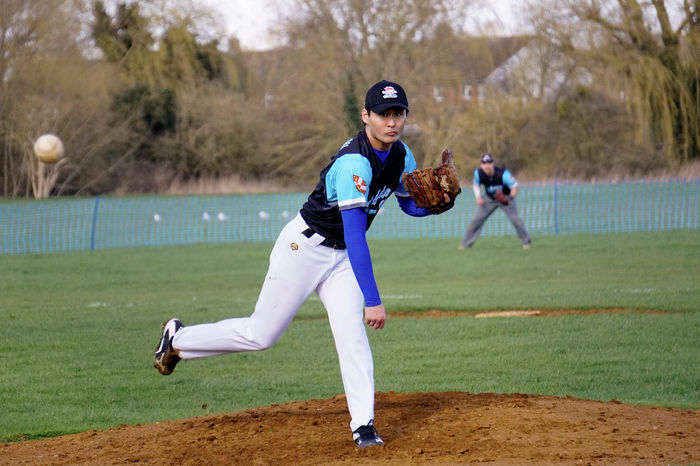Liverpool FC, Boston Red Sox, and Intervening Sports Ownership
Despite being completely different sports, Minsung Son explores the uncanny parallels between Liverpool FC and the Boston Red Sox and contemplates the reasons for this.

It’s 2004. Only four teams are left in contention for league championship in Major League Baseball (MLB)’s Postseason tournament. One of the sides, the Boston Red Sox, have already lost three games out of seven to their arch-rivals the New York Yankees. They are one game away from being denied progression to the final, the World Series, which they haven’t won since 1918.
Even the fiercest Red Sox fans are confident that the title drought is on course to continue — and fairly so, given that no team in the league’s history has ever managed to pull off a reverse sweep in a seven-game series. Bob Ryan, columnist for The Boston Globe, writes after the team’s third consecutive loss:
[The Red Sox] are down, 3–0… and, in this sport, that is an official death sentence. Soon it will be over, and we will spend another dreary winter lamenting this and lamenting that.
The Red Sox, however, think otherwise. In what is still referred to as the greatest comeback in the history of the game, they manage to win all of the remaining four games — two of them with a walk-off home run. They go on to the World Series, dominate the St. Louis Cardinals, and end their dreaded 86 year-long title drought.
“It was seemingly a once-in-a-lifetime glory — until another team, albeit in a different sport, recreated it only 15 years later.”
It was seemingly a once-in-a-lifetime glory — until another team, albeit in a different sport, recreated it only 15 years later. In the summer of 2019, Liverpool F.C. lost 3–0 to Barcelona in the first leg of the UEFA Champions League semi-final. A comeback against such a strong side was deemed impossible, not least because two of Liverpool’s attacking triad — Mohamed Salah and Roberto Firmino — were injured and unavailable ahead of the second leg. Just like the Red Sox, however, they scored four goals, making the aggregate score 4–3 to complete the miracle. Just like the Red Sox, they end up winning that season’s Champions League, their first major title in a long time.
While such striking similarities in the two teams’ paths to glory could easily be attributed to chance, there are many more parallels between them to suggest otherwise. Both teams have relatively recently hired a young management executive — Theo Epstein for the Red Sox (2003), and Michael Edwards for Liverpool (2016) — who set up a distinctively data-driven approach to transfer and gameplay. In the years following, the teams have created and largely maintained the ethos of spending efficiently within their means, contrasted to the aggressive investment strategies of their rivals. They have seen recent successes, including the 4–3 miracles and the ending of decades-long league title draughts; their victories often highlight a strong team spirit, another quality both teams are characterised by.
“The affinity between two seemingly unrelated teams 5,000 kilometres apart are uncanny to say the least.”
The affinity between two seemingly unrelated teams 5,000 kilometres apart are uncanny to say the least. Although conspiracy theorists might offer an explanation, the similarities can be best understood by the one thing the two teams have in common: their owner, John Henry. The American investor’s firm Fenway Sports Group (FSG) acquired the Red Sox in 2002 and Liverpool in 2010. Having made his fortune through his own mechanical trading method aimed at removing human bias and error in decision-making processes, Henry, with his like-minded executives including Epstein and Edwards, adapted his philosophy to the sports world – first baseball, then football. Players recruited with this focus on data — David Ortiz and Kevin Millar for Boston, Mohamed Salah and Andrew Robertson for Liverpool — were central, if not crucial, to their respective teams’ achievements.

Henry also ventured to establish a financially sustainable culture of running a sports team, which would ideally support itself through transfers, marketing revenue, and other sources of income without relying excessively on the owner. This culture meant that emphasis was often placed on cost-efficiency when acquiring players, and seems to have contributed to the ‘underdog’ impressions that commonly characterise his teams — perceived (at least initially) as a group of good-enough, rediscovered, or prospect players rather than as the ‘untouchables’ — and subsequently to the characteristically strong team spirits they are thought to have. Henry’s mission of financial sustainability has recently become more relevant, as both the MLB and the UEFA have introduced policies penalising clubs spending astronomical amounts thanks to their ownership. In carrying out this mission, the aforementioned attention on data was paramount, because it allowed him to build teams that could compete with the strongest rivals without outspending them.
It is unfair to convey that Henry’s attempts have always been successful. His insistence on making decisions unaffected by human subjectivity has produced a number of major failed transfers — especially during his early years at Liverpool. Perhaps translating his know-how from baseball directly onto the much more fluid game of football backfired. The mantra of sustainable management is also heavily criticised by the fans of both clubs, who believe that Henry’s reluctance to pay big prices for top-notch players is costing their teams titles against heavier spenders (take New York Yankees or Manchester City). Having said that, however, the sheer amount of success he has had in both Boston and Liverpool over approximately two decades — four World Series titles, a Champions League title, a Premier League title, and two broken title curses — would indicate that he is in the right general direction at the least.
The surprisingly similar trajectories of Henry’s two clubs attest to the great impact a sports owner can have on their club — not only on funding, personnel, and transfer policies, but also on more unexpected qualities like the team’s spirit and its approach to gameplay. In this sense, Henry represents the kind of owner who actively intervenes and sets out clear directions for their club, and is strongly contrasted with the ‘hands-off’ owners on the other end of the involvement spectrum. While many sports supporters perceive their club’s owner to be the latter — a mere source of transfer funds, it is worth acknowledging that, with the right level of involvement, the intervening owner can be the key figure shaping a team’s ethos, culture, and lasting legacy, for better or for worse.
 News / Clare Hall spent over £500k opposing busway 24 December 2025
News / Clare Hall spent over £500k opposing busway 24 December 2025 Comment / The ‘class’ of Cambridge24 December 2025
Comment / The ‘class’ of Cambridge24 December 2025 News / Caius mourns its tree-mendous loss23 December 2025
News / Caius mourns its tree-mendous loss23 December 2025 News / Girton JCR publishes open letter expressing solidarity with Palestine25 December 2025
News / Girton JCR publishes open letter expressing solidarity with Palestine25 December 2025 Comment / Yes, I’m brown – but I have more important things to say22 December 2025
Comment / Yes, I’m brown – but I have more important things to say22 December 2025










